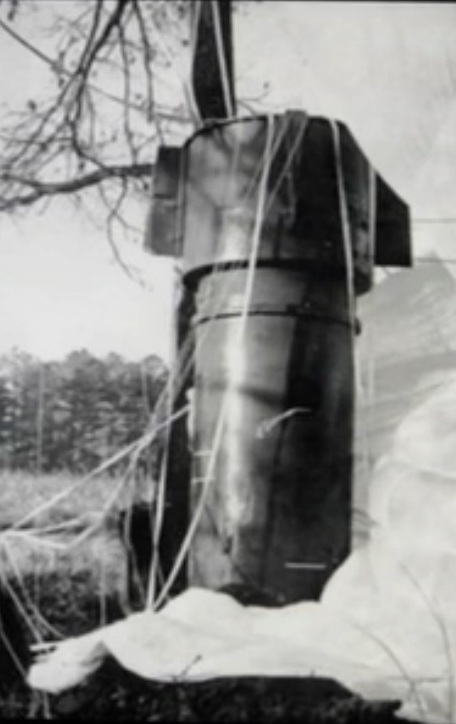Accidental Nuclear War: A Timeline of Close Calls
The most devastating military threat arguably comes from a nuclear war started not intentionally but by accident or miscalculation. Accidental nuclear war has almost happened many times already, and with 15,000 nuclear weapons worldwide — thousands on hair-trigger alert and ready to launch at a moment’s notice — an accident is bound to occur eventually.
The list of close calls here is too long for comfort, yet it’s likely very incomplete, given that these represent only America’s declassified events. Many other events may have occurred in the U.S. that we don’t know about, and we certainly don’t know about close calls the other eight nuclear countries have had. Many nuclear experts are concerned about a war between India and Pakistan, and if one of them were to accidentally start a nuclear war, the resulting nuclear winter could kill 1 billion people worldwide.
Moreover, there are signs of the Cold War restarting. The U.S. and Russia are both upgrading their arsenals, which means new weapons and new ways for something in the system to go wrong. The risk of accidental nuclear war is only growing, and barring major initiatives for risk reduction, it’s merely a matter of time until our luck runs out.
Most of the reports in the timeline above come from the Union of Concerned Scientists, the Nuclear Files, Eric Schlosser’s book, Command and Control: Nuclear Weapons, the Damascus Incident, and the Illusion of Safety, or Mother Jones. They are either paraphrased or directly quoted, and each links to the original source.
FLI members on the close calls they think were scariest
Anthony Aguirre: Perhaps it’s breaking the rules, but I would say the constellation of incidents *around* (and including) the Cuban missile crisis — so many! It suggests that (a) when tensions escalate, it becomes dramatically more probable that unfortunate coincidences etc. will conspire to create big problems (like “Soviet Sub Captain…Crisis”) and (b) we were *very* lucky to get through the Cuban Missile crisis, and we have no good reason to be confident that we would make it through any similar flare-up in tensions.
Meia Chita-Tegmark: I find the incident of the bear triggering a nuclear alarm from October 25, 1962 very cynical. We humans are so hubristic when comparing ourselves to the rest of the animal kingdom, yet we’ve inadvertently created a system through which a single bear could endanger our civilization.
Ariel Conn: Richard Nixon’s depression is the scariest to me because that’s something that could happen at any time to any president. It’s not dependent on external conflicts with other countries, but internal, personal conflicts that the rest of the world may or may not know about. As mental health becomes a more recognized issue, it’s increasingly apparent that no one can really be trusted with nuclear weapons.
Victoria Krakovna: For me it would be a tie between the Arkhipov and Petrov incidents, and Presidential Depression is pretty scary as well. These examples show how much can depend on the decisions of a single person.
Janos Kramar: I think perhaps the Yeltsin incident is scariest, simply because a nuclear football was involved and the missile itself had a plausible flight path for an opening EMP attack. But this is partly relying on my guess that in many other close-calls, the event wouldn’t have escalated to full MAD; if I’m wrong about this, then the Arkhipov incident seems scariest, since the 2 officers out of 3 agreeing to use their weapon clearly show that the disaster was close to happening. (~25% chance, by my count.)
Richard Mallah: I’d say the Petrov incident since he recalls his decision to override official processes as 50/50. Many other people would not have been so thoughtful as to question what their technology is telling them.
Lucas Perry: “Soviet Sub Captain Decides to Fire Nuclear Torpedo During Cuban Missile Crisis” This to me seemed the scariest because it makes clear that a small group of people with sufficient access to nuclear weapons, whom also have bad intentions or lack some vital information, could start a nuclear war. As the technology and knowledge needed to construct nuclear weapons continues to spread, the threat of nuclear war caused by some small group of people in some politically unstable country continues to increase.
David Stanley: “Lost Contact with 50 Missiles” To me this is the scariest because, unlike the other events, this could potentially have led to an accidental launch of ICBMs rather than just a false alarm of an incoming attack. Additionally, the fact that it happened so recently highlights that our present safeguards are not necessarily more robust than those from 50 years ago.
Max Tegmark: “Soviet Sub Captain Decides to Fire Nuclear Torpedo During Cuban Missile Crisis” To me, this is both harrowing and educational: it shows how great risk can come from the combination of many separate unfortunate coincidences and misunderstandings that couldn’t start a nuclear war on their own, but can provide the perfect storm when combined. The fact that it remained secret for decades also suggests that there may be recent scary incidents that we haven’t yet heard of.
